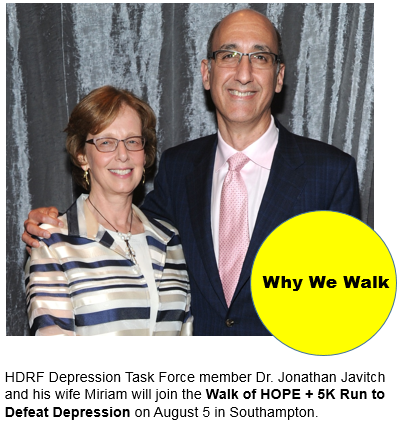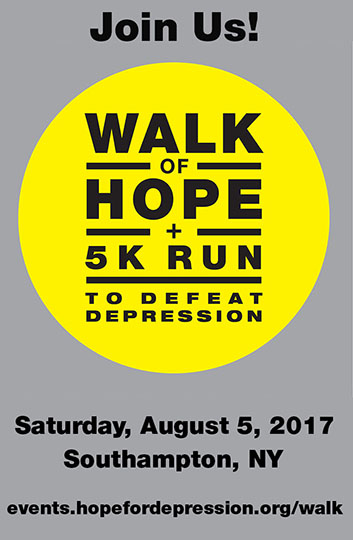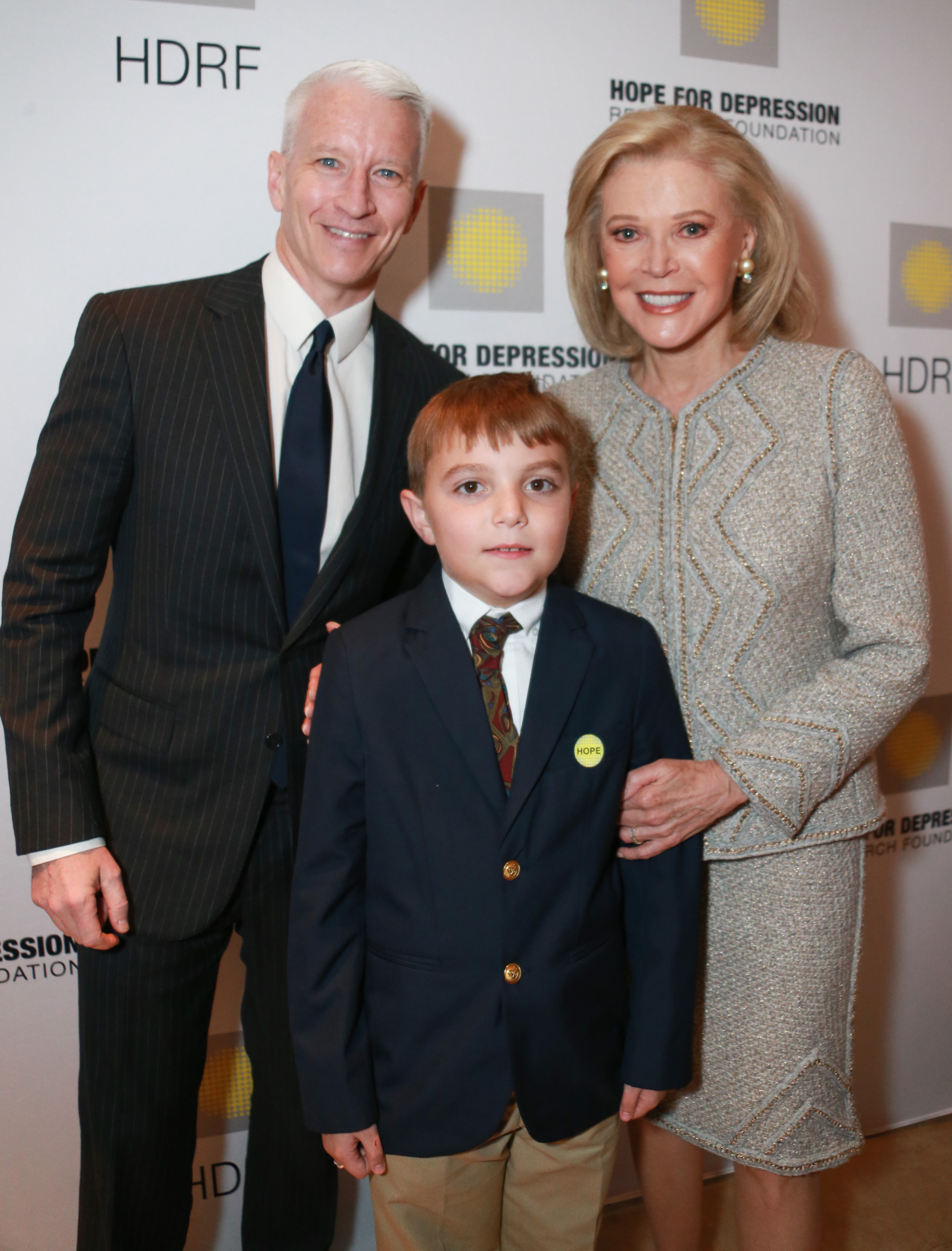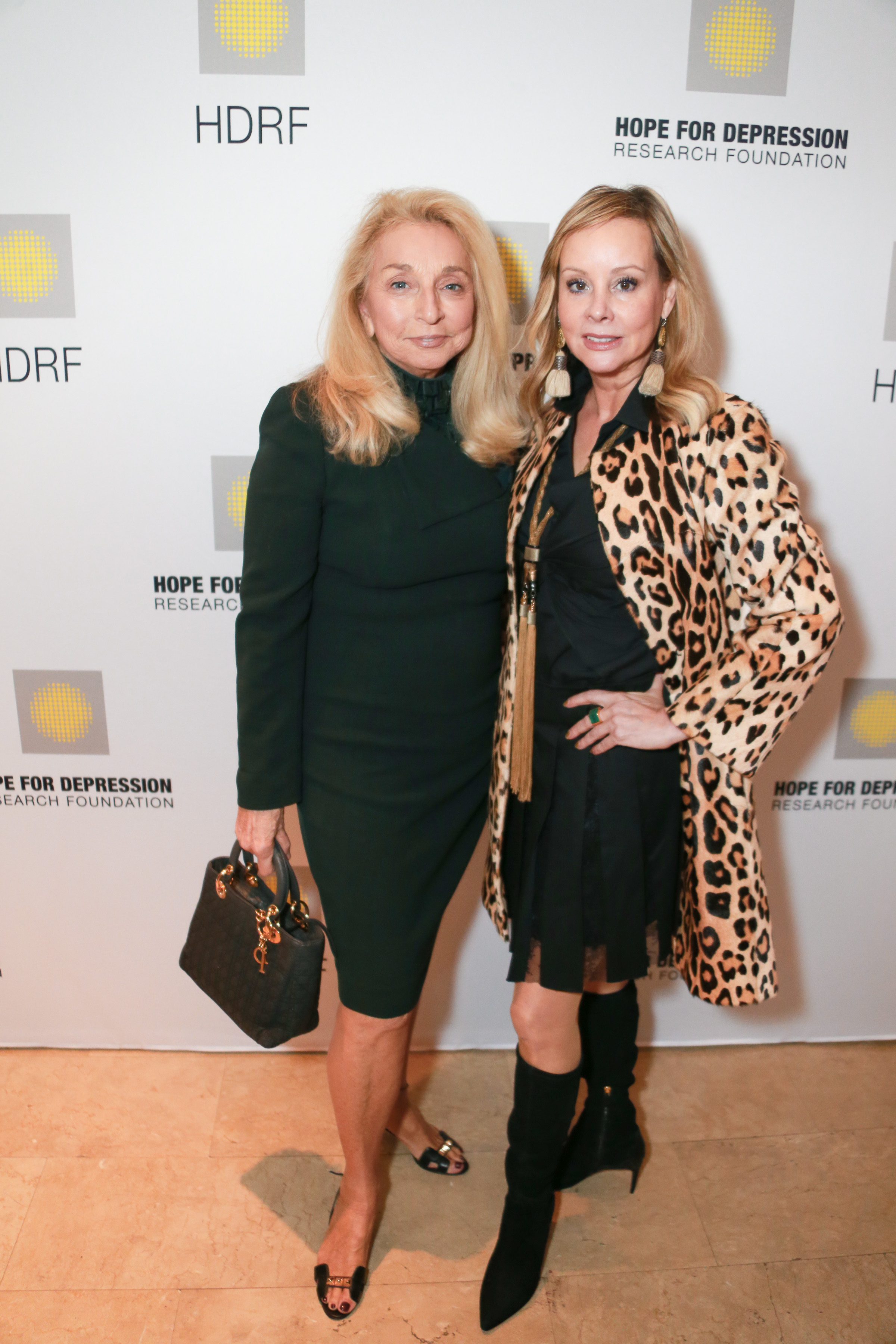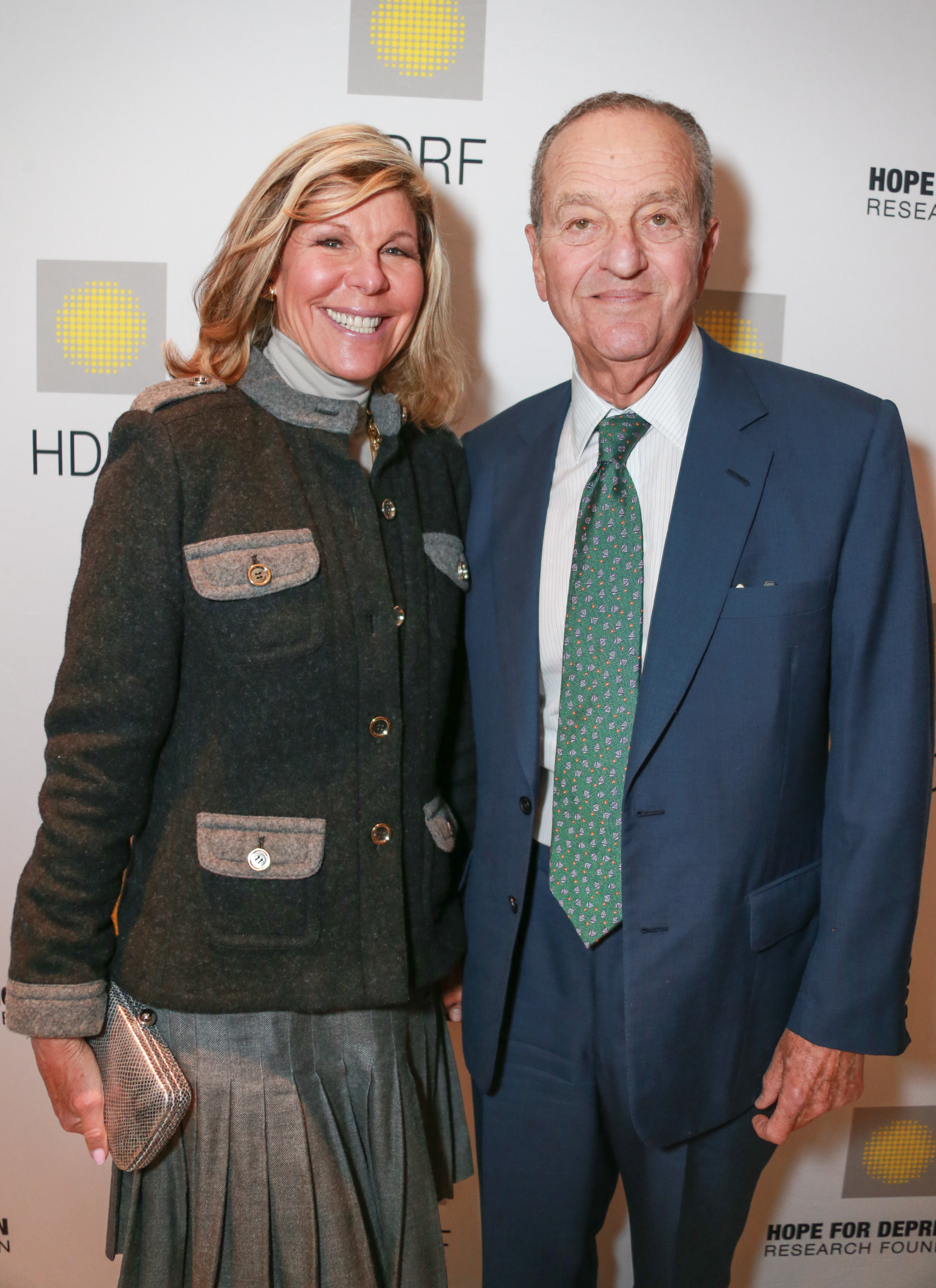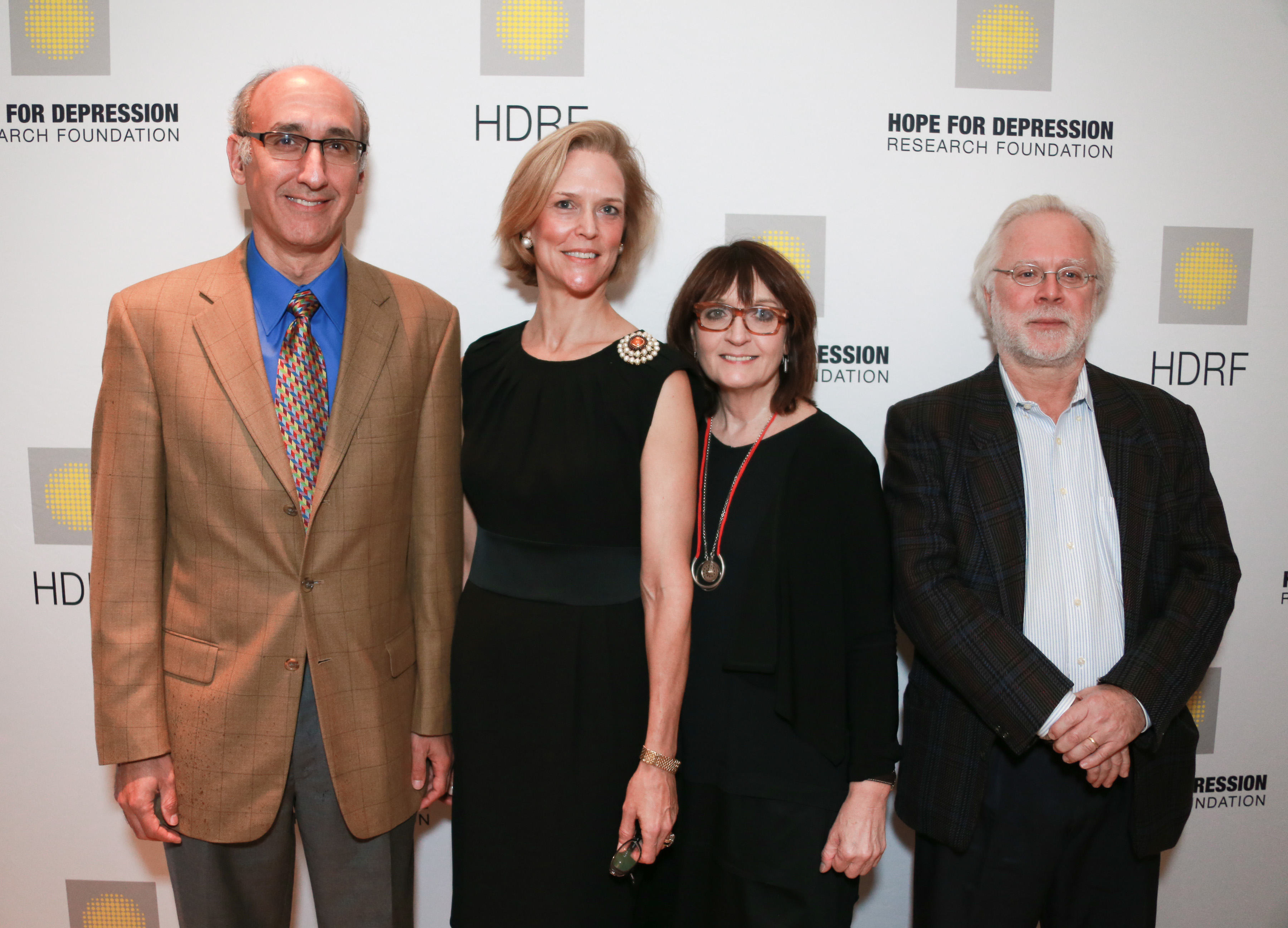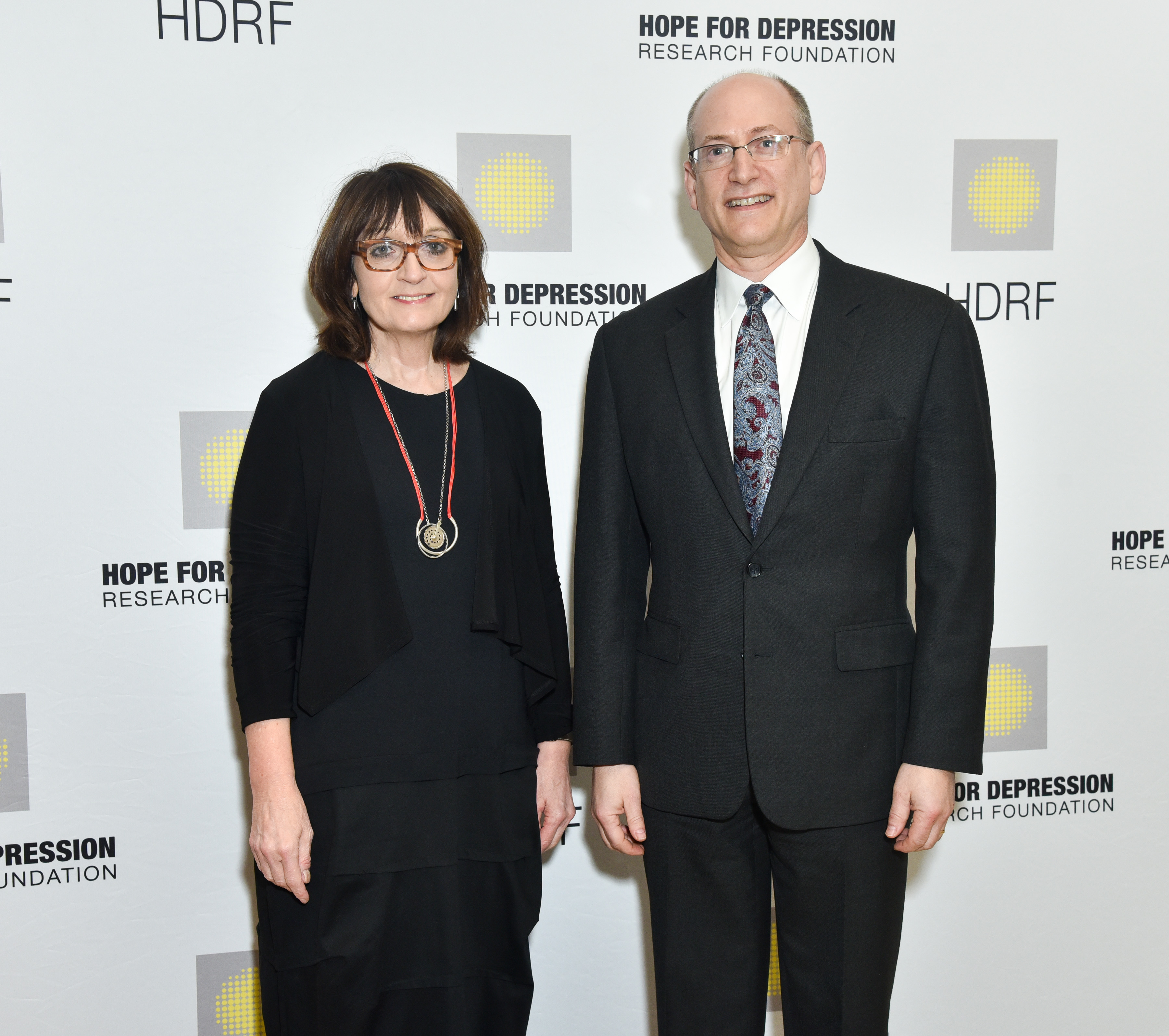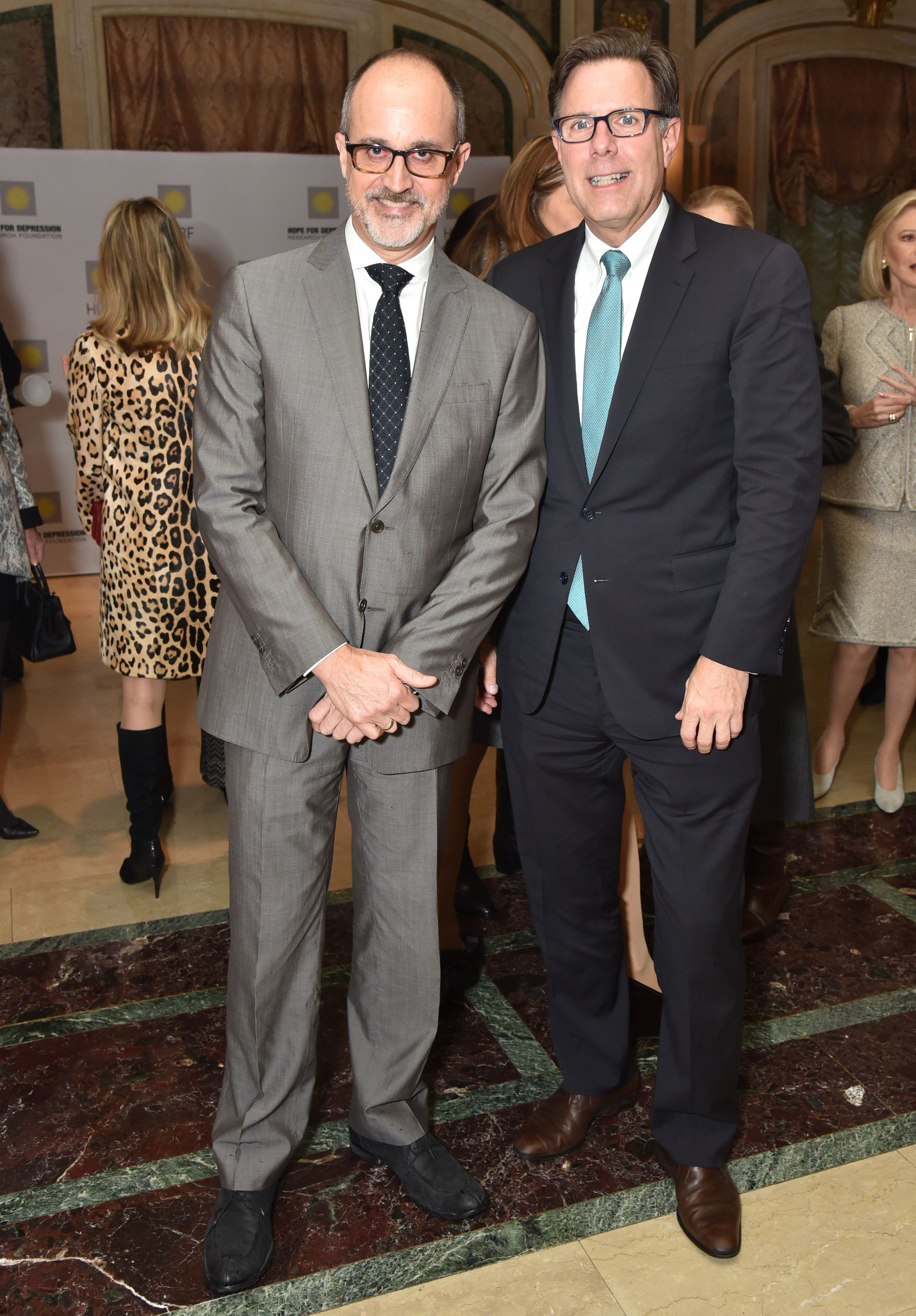Guest Bloggers
Walk of HOPE Raises A Quarter Million for Research!,
September 5, 2018
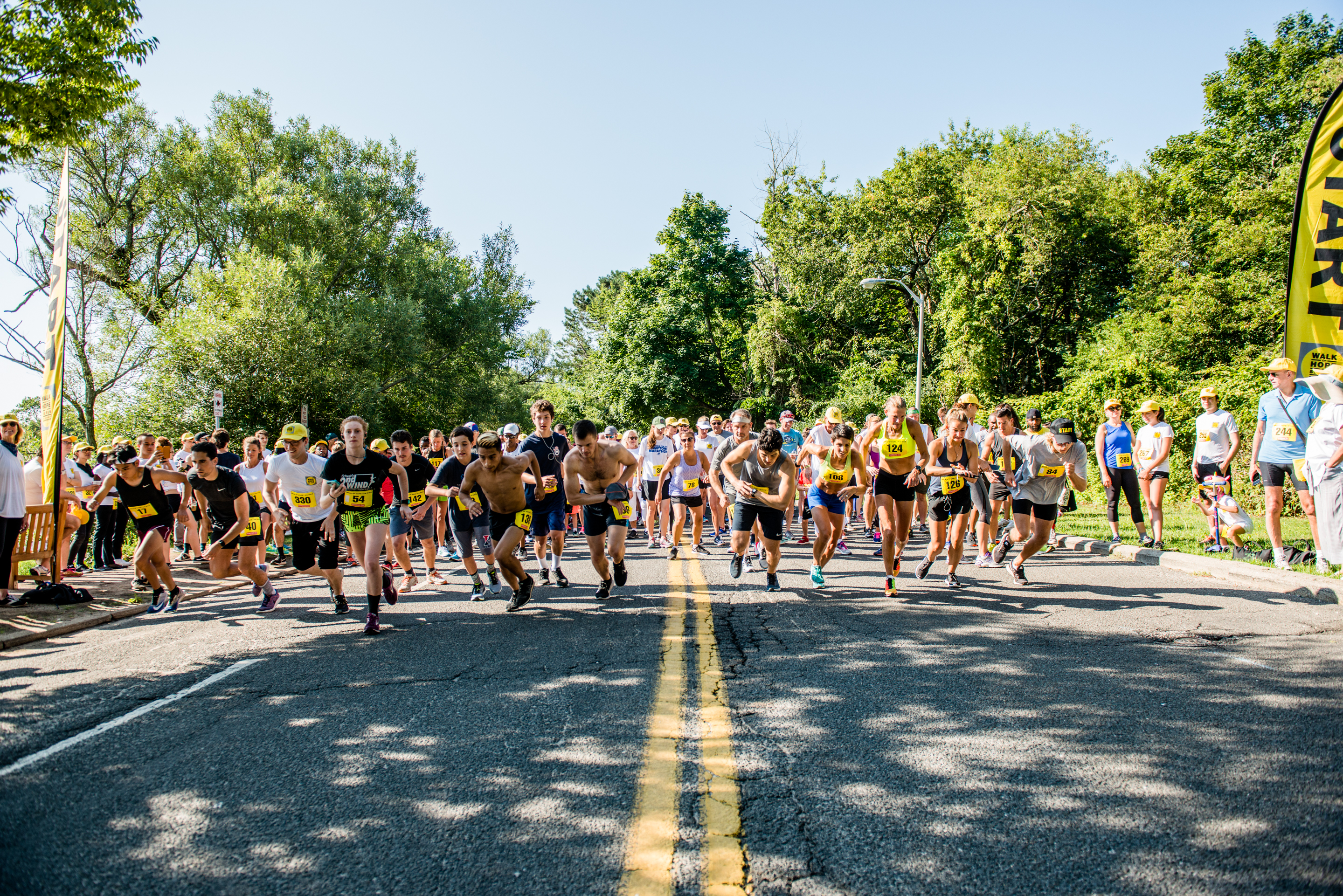
Thank you to the hundreds of participants who came out for our third annual Walk of Hope + 5K Run to Defeat Depression on Sunday in Southampton.
This year’s event was a huge success! More than 500 men, women and children – plus a few canine friends – came out to raise awareness and $250,000 for advanced depression research.
Speaking from the steps of the Southampton Cultural Center just before the starting gun, HDRF Founder and Chair Audrey Gruss said, “Depression is the number-one reason in the world for disability, and the leading cause of suicide. We want people to know there is help, and we need more research if we are going to turn the tide on depression and suicide in this country, so thank you all for coming out to support the cause today.”
Click here to read the full article…
Teens, Social Media and Mental Health Symposium,
May 17, 2018
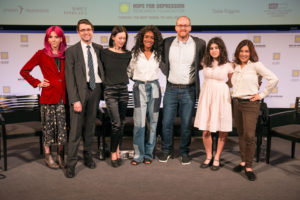 Elyse Fox, Teens and Leading Voices in Mental Health made up the panel.
Elyse Fox, Teens and Leading Voices in Mental Health made up the panel.

Whether you were in the audience or watched via Live Stream, we want to thank you for helping to make HDRF’s Symposium on Teens, Social Media and Mental Health last week a resounding success.
Is social media making teens depressed? We addressed this question with a panel of doctors, writers and young activists who shared their stories in a public forum on Tuesday, May 8 at the Paley Center for Media before an audience of over 125 people, including many NYC teens and their parents. Also in attendance were actors Justina Adorno, ABC’s Grand Hotel, Matt Flynn, FOX’s Gotham, Robert Manzell, Netflix’s Iron Fist, and Alyssa Kempinski, HBO’s the Deuce.
The panel offered remarkable insights and included Em Odesser, 17, Editor-in-Chief and Co-Creator of Teen Eye Magazine; writers Scarlett Curtis and Philip Eil; doctors Alexander Harris, MD, PhD; Marianne Chai, Medical Director, New York Center for Living; and UCLA’s Dr. Yalda T. Uhls, author of Media Moms and Digital Dads, A Fact Not Fear Approach to Parenting in the Digital Age. The moderator was Elyse Fox, founder of Sad Girls Club, and online and IRL forum for young people to talk about mental health openly.
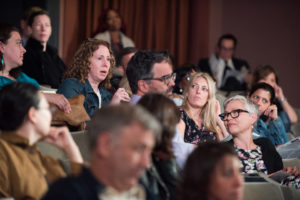
| What we learned? |
The Alarming Studies and How to Understand Them
Over the past five years, depression rates have spiked in young people by 33 percent, and suicide rates in girls have jumped by 65%. Many experts say this alarming trend is linked to the rise of social media. Recent studies show that teens and young adult users who spend the most time on Facebook and other platforms have a substantially higher rate of reported depression (from 13 to 66 percent) than those who spend the least time.
However, it is important to understand the difference between causation and correlation. Is social media actually “causing” depression? Or are kids turning to social media because other factors and trends in society are making them depressed?
More research is needed to fully understand the effects of social media on mental health, the doctors on the panel said.
Social Media Can Distort and Create Community
The panel agreed that heavy use of social media can be harmful to self-esteem; case in point is the rise of the term “FOMO,” or “Fear of Missing Out.” Teens are especially susceptible to the feeling of being left out by their peers, and 24-7 social media can exacerbate this. “We should not judge our interiors by everybody else’s exteriors,” said Panelist Em Odesser, age 17.
However, social media can also be a lifeline to a sense of community when a teen feels bullied or isolated. Panelist Scarlett Curtis noted that when an illness kept her housebound, social media was her only source of friendship, community and career success. Odesser added, “If it wasn’t for social media, I would be far lonelier because in a community that I don’t always feel that comfortable in, I can text my best friends in other continents and feel better.”
Moderation and Parental Guidance is Key
Psychiatrist Dr. Marianne Chai urged the teens in the audience to check in with themselves and take ownership of their use of social media. Is something online making them feel upset? If they are experiencing negative emotions, they should skip social media for a few days and share their feelings with a trusted adult. They should also examine their reasons for signing back on to social media.
Parental guidance is also key. Adolescent brains are still developing which can lead to impetuous decisions and posts that can have lifelong consequences. Panelist Dr. Yalda Uhls said “We need to teach kids how to have a positive digital footprint.” She advised taking advantage of “ teachable moments” – a social media scandal in the news can be used to guide teens about their own online behavior. She added that every social post holds weight in this society and can have severe implications. “Parents need to be role models and have a positive digital citizenship” Uhls added.
The upshot?
All panelists agreed that social is media here to stay and in fact the platforms that teens use are constantly changing. Therefore, we must look at both the pros and the cons and learn to adapt the new technology to positive ends. Dr. Alex Harris advised parents, family, and friends to pay attention to any warning signs.
If you see an abrupt change, where a child or young adult is using social media a lot more than usual or a lot less than usual, then it is a good time to check in. It’s as basic as the Goldie Locks theory – is your child using social media too little or too much – it is up to the parents to help their child find what it just right!
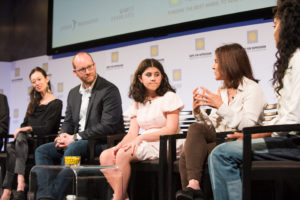
Helpful Links:
Child and Adolescent Mental Health, National Institute of Mental Health: https://www.nimh.nih.gov/health/topics/child-and-adolescent-mental-health/index.shtmlBelow are useful resources that came out of the day offering quality information on adolescent brain development, mental health and media use:
- Common Sense Media: https://www.commonsensemedia.org/
- Adolescent Brain Cognitive Development Study: https://abcdstudy.org/index.html
- Teen Depression, NIMH: https://www.nimh.nih.gov/health/publications/teen-depression/index.shtml
- The Teen Brain: 6 Things to Know: https://www.nimh.nih.gov/health/publications/the-teen-brain-6-things-to-know/om-16-4307_153233.pdf
- The American Academy of Pediatrics just published their new technical guidelines on treating adolescent depression: https://www.healthychildren.org/English/news/Pages/AAP-Publishes-Teen-Depression-Guideliness.aspx
Helpful books:
- Media Moms Digital Dads, Yalda T. Uhls
- So You’ve Been Publically Shamed, John Ronson
- Screen Smart Parenting, Jodi Gold
- Raising Digital Natives, Devorah Heitner
Where to get help
- 911 – Some social media sites have a process to report suicidal content & get help. It’s still important to call 911 if someone is posting suicidal messages or something disturbing on social media
- TXT 4 HELP, Safe Place: http://www.nationalsafeplace.org/txt-4-help
- Suicide Prevention Life Line: http://www.suicidepreventionlifeline.org call: 1-800-273-8255 text: 741741
- 7 Cups: https://www.7cups.com/
If you missed it, and you would like to watch, click here!
Why We Walk – Dr. Jonathan Javitch,
July 28, 2017
Dr. Jonathan Javitch is a brain scientist in great demand: he is Professor of Psychiatry and Pharmacology at Columbia University and a key member of HDRF’s elite Depression Task Force.
On Saturday, August 5 he will be in Southampton with his wife, Dr. Miriam Javitch, an executive coach, to join in the Second Annual Walk of HOPE + 5K Run to Defeat Depression.
“We’re walking because we’ve had people in our family struggle with depression,” said Jonathan. “I’m a clinical psychiatrist by training as well as a research scientist searching for a better understanding of and new treatments for depression.”
But, he added: “You really confront the horror of the illness when you see somebody you love struggle. We must find answers.”
Jonathan’s commitment is contagious. Join Jonathan and Miriam at the Walk of HOPE + 5K Run to Defeat Depression on Saturday, August 5 in Southampton Village, NY. Walks starts at 9 AM. Rain or Shine!
Score two tickets to Hamilton, the hottest show on Broadway!,
July 7, 2017
How can you score two tickets to Hamilton, the hottest show on Broadway?!
Join us for the WALK OF HOPE to Defeat Depression Saturday, August 5 in Southampton, NY. You can choose to Walk or Run the three mile course. Register today and you will have a chance to win two prime orchestra seats to the 11 Tony Award-Winning phenomenon!!
But step lively! You must register early to be eligible to win. We’ll pick the winner from a random drawing of all WALK/RUN participants who register before July 14. We’ll announce the lucky winner right before setting out on the three-mile loop around beautiful Lake Agawam in Southampton.*
So click here to register today. Registration is just $50 and includes a commemorative hat and t-shirt.
Walk with us to win tickets to Hamilton AND to raise awareness and funds for the most innovative depression research today!
Walk with us because:
- Depression affects 20 million adults in the US each year
- Depression is the leading cause of disability worldwide
- The causes of depression are still unknown
- 50% of people do not respond to existing medications
Walk with us because HDRF is working to change that. As the leading non-profit organization focused solely on depression research, we are at the forefront of finding answers and defeating depression.
100% of all proceeds go directly to research!
We look forward to walking with you on August 5!
TO REGISTER
- Go to Walk of HOPE + 5K RUN to Defeat Depression
- Choose how you wish to participate. You can: Register as an individual, Form a Team, or Join a Team.
- Then follow the directions on the Welcome Page.
If you have any questions or need help signing in or registering for the walk/run, please email us at events@hopefordepression.org or call us at 212.676.3205.
10th-annual-hope-luncheon-seminar,
January 6, 2017
Tenth Annual HOPE Luncheon Seminar
The Search for New Depression Medications
Tuesday, November 15, 2016
The Plaza Hotel
New York City
Chuck Scarborough, 2016 HOPE Award for
Depression Advocacy Recipient, Anderson Cooper
and HDRF Founder & Chair Audrey Gruss
Anderson Cooper, Shane Boylan and Audrey Gruss
Andrea Greeven Douzet and Laura Nicklas
Ann Barish, Jane Marray and Pattie Lynch
Eleanor Kennedy and Yaz Hernandez
Jamee and Peter Gregory
Stephanie Krieger, Elizabeth Thompson, Margo
Langenberg and Roberta Sandeman
Dr. Jonathan Javitch, HDRF Executive Director
Louisa Benton, Dr. Helen Mayberg,
and Dr. Rene Hen
Susan Gutfreund, Audrey Gruss and HRH Princess
Katherine of Serbia
Dr. Helen Mayberg and Dr. John Krystal
Arthur Dunnam and Richard Ziegelasch
Ritchey Howe, Carol Mack, Caroline Dean and
Danielle Gane





